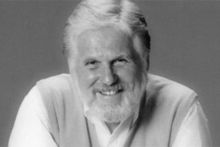Power Ministry In The Epistles

John Wimber died on November 17, 1997, four years after the publication of The Kingdom and the Power.
It would seem most fitting to read the Epistles in light of this a foreview in the Gospels and Acts, and to allow the Epistles to carry their own emphasis. They have a different purpose. I can illustrate by an experience of mine which is similar. John Wimber* is an acknowledged advocate of the present operation of all of the gifts of the Spirit. I have heard him expound his understanding at length in conferences. His books, Power Evangelism and Power Healing, offer a straightforward statement.10 Yet, when I visited two meetings of his church in November of 1985 and heard him preach on both occasions, he did not mention the miraculous in either message. He pastored the people in the morning from 1 Peter as to how to respond to suffering and exhorted them in the evening from Psalm 5 to godly living. Prayer for the sick and looking to God for the gifting of His Spirit were an accepted part of the life of his church, and Wimber’s purposes in those services were elsewhere. So it is, I believe, with the epistles.
With reference to the writers whose works are reviewed by Stafford and to the circles in which they move, I believe that the label “signs and wonders” movement is no longer an adequate description, if it ever was. This is true, at least, of the churches with which I am most familiar, especially those of the Vineyard, in which other emphases have more recently emerged. Healing and other gifts of the Spirit were indeed a prominent emphasis (along with worship), perhaps the most prominent, during the last decade [the 1980s]. It is still a bedrock conviction that the full range of the Spirit’s activity described in the New Testament is intended to be operational throughout the Church age (though at His discretion and under His control) and is vital to the ministry God wants to grant and we all need. I believe that the affirmation of the gifts of the Spirit during the last decade was a word from God, specifically to His evangelical children to help them catch up in this area with their Pentecostal, charismatic Catholic, and charismatic mainline Protestant brothers and sisters who had already led the way.11
I want to acknowledge that there have been excesses and mistakes in these movements both in teaching and in practice.12 This is characteristic of renewal movements throughout Church history.13 It has never, however, justified the wholesale rejection of the miraculous gifts of the Spirit; and it does not today.
The full range of the Spirit’s activity described in the New Testament is intended to be operational throughout the Church age and is vital to the ministry God wants to grant and we all need.


